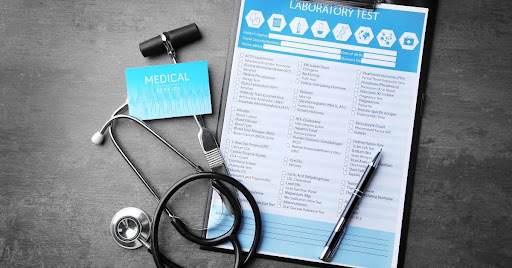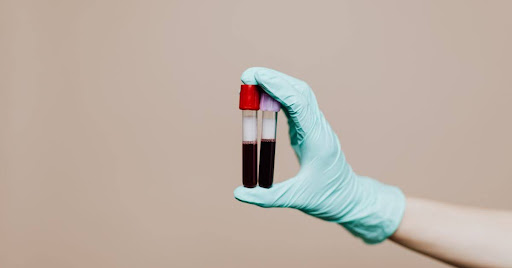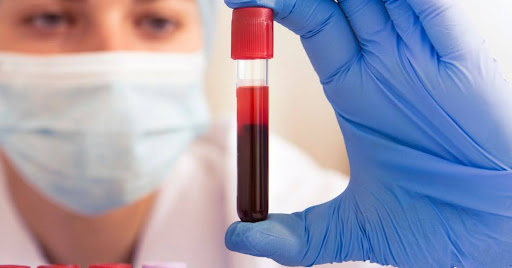Annual Health Checkups: Importance, Essential Tests, and Screening Benefits
4 min read
By DocGenie , Published on - 16 December 2024
Taking care of your health doesn't only mean visiting a doctor when you're unwell. It also means being proactive and preventing diseases before they take root. That's where the concept of an annual health check up becomes important. These yearly evaluations help you understand your current health status and alert you to any potential health risks in their early stages.
With the rise of lifestyle diseases, pollution, and stressful routines, the importance of regular health screenings has increased significantly. This blog will guide you through why yearly health check ups are essential, what they include, and how they can help you stay in control of your health.
Why is an Annual Health Check Up Important?
Many chronic conditions such as diabetes, high blood pressure, thyroid disorders, or high cholesterol develop silently over time. By the time symptoms appear, the condition may already be in an advanced stage. Regular health screenings help detect these conditions early, allowing for timely treatment and better outcomes.Here are some key benefits of an annual health check up:
- Detect diseases early, even when no symptoms are present
- Monitor existing conditions and manage them effectively
- Reduce long-term healthcare expenses by preventing complications
- Track changes in your body over time
- Encourage healthier lifestyle habits through awareness
- Improve overall life expectancy and quality of life
When you get into the habit of taking a yearly health check up, you become more aware of your body and can take preventive actions rather than reactive ones.
What Are the Important Tests for Human Body in an Annual Checkup?
 An annual health check up is typically customized depending on age, gender, and lifestyle factors. However, some tests are considered universally important because they cover vital aspects of the body’s function.
An annual health check up is typically customized depending on age, gender, and lifestyle factors. However, some tests are considered universally important because they cover vital aspects of the body’s function.Below is a list of important tests for human body commonly included in full body checkups:
- Complete Blood Count (CBC): Evaluates overall health and detects disorders like anemia or infections.
- Blood Sugar Test (Fasting and Postprandial): Helps identify diabetes or prediabetes.
- Lipid Profile: Measures cholesterol levels to assess heart disease risk.
- Liver Function Test (LFT): Checks liver enzymes and helps detect liver-related issues.
- Kidney Function Test (KFT): Monitors how well your kidneys are working by measuring creatinine and urea.
- Thyroid Function Test: Measures TSH, T3, and T4 to identify thyroid imbalances.
- Vitamin D and B12 Levels: These deficiencies are common and can cause fatigue, bone weakness, or mood disorders.
- Urine Routine Test: Identifies kidney infections, diabetes, or dehydration.
- Electrocardiogram (ECG): Monitors heart activity and detects irregular rhythms or heart disease.
- Chest X-Ray (optional): Helps detect lung infections, heart enlargement, or chronic conditions like COPD.
- Body Mass Index (BMI) and Blood Pressure Measurement: Important for evaluating your risk of hypertension and heart disease.
These important tests for the human body form the foundation of any well-rounded health screening. Based on your results, doctors may recommend additional specialized tests.
What Happens During a Yearly Health Check Up?
 A yearly health check up is a step-by-step process that covers different aspects of your health. It usually begins with a review of your medical history and lifestyle habits such as smoking, drinking, diet, and physical activity. Your vitals are recorded, and the required tests are scheduled.
A yearly health check up is a step-by-step process that covers different aspects of your health. It usually begins with a review of your medical history and lifestyle habits such as smoking, drinking, diet, and physical activity. Your vitals are recorded, and the required tests are scheduled.Here’s what you can typically expect:
- Fasting for 8–12 hours prior to certain blood tests
- Blood sample collection for lab tests
- Urine and stool sample collection if needed
- Physical examination including height, weight, BMI, and blood pressure
- Imaging tests like ECG or X-ray if part of the selected package
- One-on-one consultation with a general physician for result discussion
Once the test reports are ready, the doctor explains the findings and offers advice regarding medication, lifestyle changes, or further investigations if necessary.
Who Should Get an Annual Health Check Up and How Often?
While annual checkups are important for everyone, certain people should be more vigilant:
- Individuals over the age of 30
- People with a sedentary lifestyle or poor dietary habits
- Those with a family history of chronic diseases
- Smokers and regular alcohol consumers
- People experiencing unexplained fatigue, mood swings, or weight gain/loss
For most adults, a yearly health check up is sufficient. However, if you have a diagnosed condition like diabetes or hypertension, your doctor may recommend more frequent testing.
Conclusion
An annual health check up is more than just a series of tests. It’s a preventive tool that helps you live a healthier and more informed life. In today’s fast-paced world, taking time once a year for your health can go a long way in avoiding future complications.
Understanding the importance of regular health screenings can save you from long-term medical issues and expenses. Make it a yearly habit — book your full body checkup, monitor key health indicators, and consult your doctor for better health decisions.
By investing in a yearly health check up, you’re not just adding years to your life but also improving the quality of those years. Prevention is always better than cure — and when it comes to your health, early detection makes all the difference.



